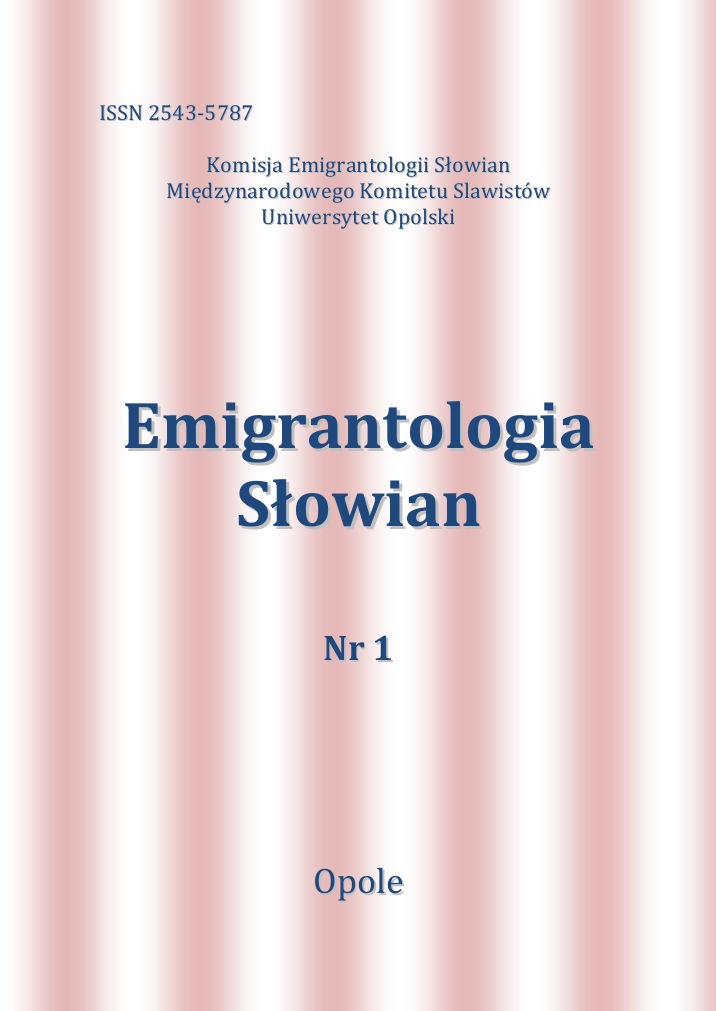
We kindly inform you that, as long as the subject affiliation of our 300.000+ articles is in progress, you might get unsufficient or no results on your third level or second level search. In this case, please broaden your search criteria.

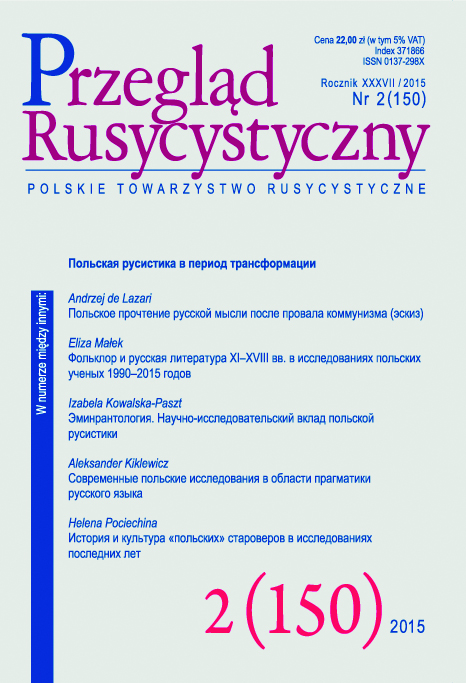
Based on the literary and cultural material, the article discusses two functions played by the term of emigrantology as a legacy of three waves of Russian emigration in the 20th century. The term was introduced by Lucjan Suchanek to the research space of Slavic emigration. It has systematized the area of intellectual and scientific self-reflection (including literary studies, historiography, philosophy and theology, and cultural studies), which developed in the community of Russian emigration. Additionally, the term provides modelling of the need for interdisciplinary and in the nearest future trans-disciplinary studies on the complex cultural phenomenon of Slavic emigrations. In this particular context, the article presents major research directions and achievements of Russian studies in Poland.
More...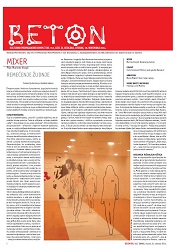
MIXER, Marinko Vorgić: Remećenje žudnje; CEMENT, Haris Imamović: Momci, jeste gledali Neretvu?; ARMATURA, Marko Miletić: Stvari koje nestaju; VREME SMRTI I RAZONODE, Predrag Lucić: Malvina
More...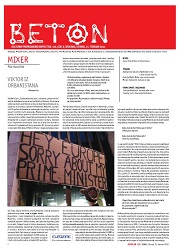
MIXER, Hana Dink: Viktor iz Orbanistana; ŠTRAFTA, Aleksandra Sekulić: (Ne)Vidljivi strip o pod-slučaju Ugričić, Andrija Matić: Mišja rupa od slonovače, Marjan Čakarević: Jastuče za igle; VREME SMRTI I RAZONODE, Tomislav Marković: Pendrek piše srcem, Predrag Lucić: Operacija biblioteka
More...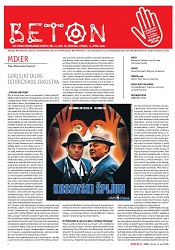
MIXER, Aleksandar Pavlović: Gor(s)ki talog istorijskog iskustva; CEMENT, Jasna Dimitrijević: Vidi pod: simulakrum; ŠTRAFTA/arhiv, Desimir Tošić: Svet u promenama; VREME SMRTI I RAZONODE, Tomislav Marković: Pravilnik o naricanju za otetim Kosovom; BULEVAR ZVEZDA, KOVAČEVIĆ, Siniša
More...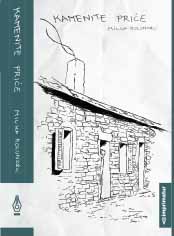
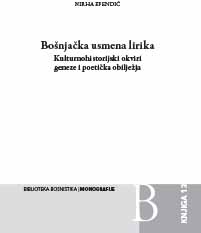
Owing to the fact that there are thousands of written, audio and video recordings of oral lyrical poetry of South Slavic peoples – Bosniaks, Montenegrins,Croats and Serbs – whose connection on lingual and literary levels are undeniable, it was possible to approach the task of a comprehensive theoretical classification of Bosniak oral lyrical poetry in its various forms of expression The life in a relatively small area in the southeastern Balkans where these peoples have lived with or along each other over ,many centuries– regardless of the shifting borders that divided them in some periods or different state and political frameworks in which they lived and acted,sometimes even as military opponents – led to diverse and vibrant everyday encounters which had a significant impact on shapes of folkloric melodic and poetic creations whose theoretical classification is the subject of this book The issues of the common and shared aspects in South Slavic poetry,i e poetic and differential features, have not been given the deserved attention in the existing works dedicated to these topics The common features at the thematic and motif level in oral literature are visible and have been observed to some extent in terms of literature history in works of the authors who studied the poetic heritage over past several decades. However, we lack approaches which would, in a comprehensive manner,classify certain lyrical occurrences, whereby we must note that – when it comes to Bosniak oral lyrical poetry – a lot has been achieved in theoretical classification of sevdalinka love song, and as of lately lullabies too There is a unanimous opinion in the relatively rich literature on sevdalinka that local features make out the difference between sevdalinka songs and lyricallove songs of the neighboring traditions In order to fully understand this, we must focus our attention on the fact that local features, i e the way in which the poet’s reality is described in the oral poem, also represent the differential feature of ”transitional forms” of ballads and romances, which has been explained comprehensively in the existing literature,
More...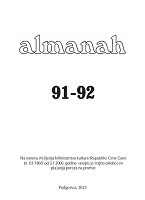
Reviews of: Esad Kočan, Naša Rijeka, Almanah, Podgorica, 2023.; Safet Hadrović Vrbički: “Orfeji Bihora - Pričam ti priču”, Centar za kulturu Petnjica, 2022.; Šaban Šarenkapić, Kuća jasina, BUKS, Novi Pazar, 2022.; Nasuprot zlu: Muslimanske rezolucije iz 1941.: Zajednička izjava iz 2015. Priredili: Enes Karić i Mustafa Spahić, izd. El-Kalem, Sarajevo 2019, str. 120.; Avdija Avdić: Otkidoh stručak do zemlje: devedeset lirskih narodnih pjesama iz Sandzaka Vlastito izdanje priređivača, Bijelo Polje 2011.; Adamir Jerković: “Magle nad Bosnom,” Almada, Sarajevo 2022.; Dr Sofija Kalezić, Rasplitanje duge: Antologija proznog stvaralaštva Bošnjakinja Crne Gore, Almanah, Podgorica, 2022.
More...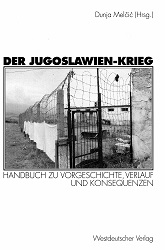
18.1. Literature and »national consciousness« 18.2. Delimitations and border crossings 18.3. The ideology of »Yugoslavism« 18.4. Brief overview of the individual national literatures
More...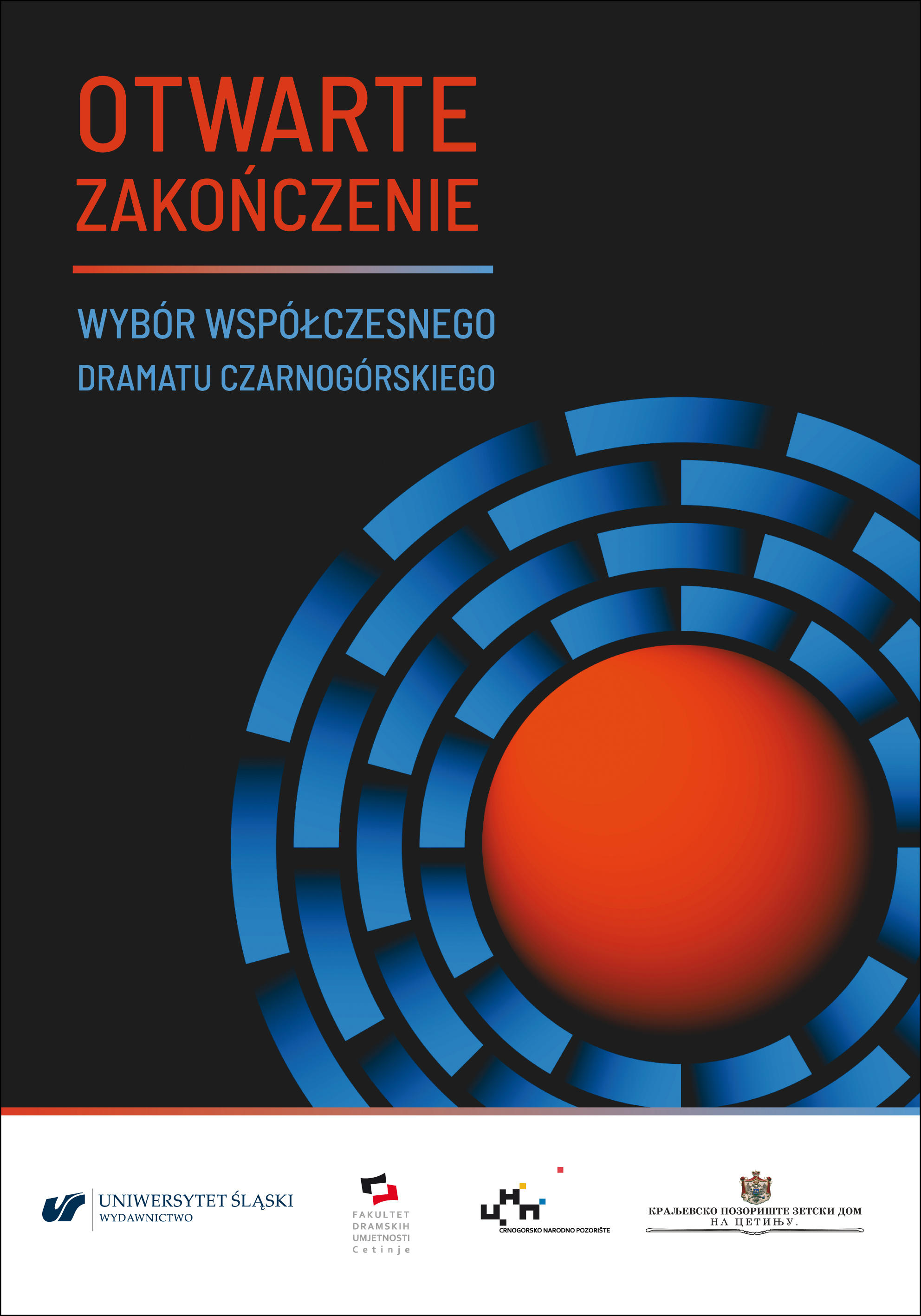
All the texts included in the anthology Open End were written in the last two decades and complete the picture of contemporary European playwriting. The shape of this work was influenced by the achievements of representatives of older generations of native artists, as well as the practice of Western European artists. However, through artistic negotiations, a distinct quality was created. The content presented in the dramas, despite the specificity and local color, has a universal appeal and resonates with reality in global terms. The subject matter of these works includes Montenegrin anthropological and cultural realities that are poorly recognized in Poland, historical facts updated in the context of contemporary events, as well as Montenegro-Yugoslavia and Montenegro-Europe relations.
More...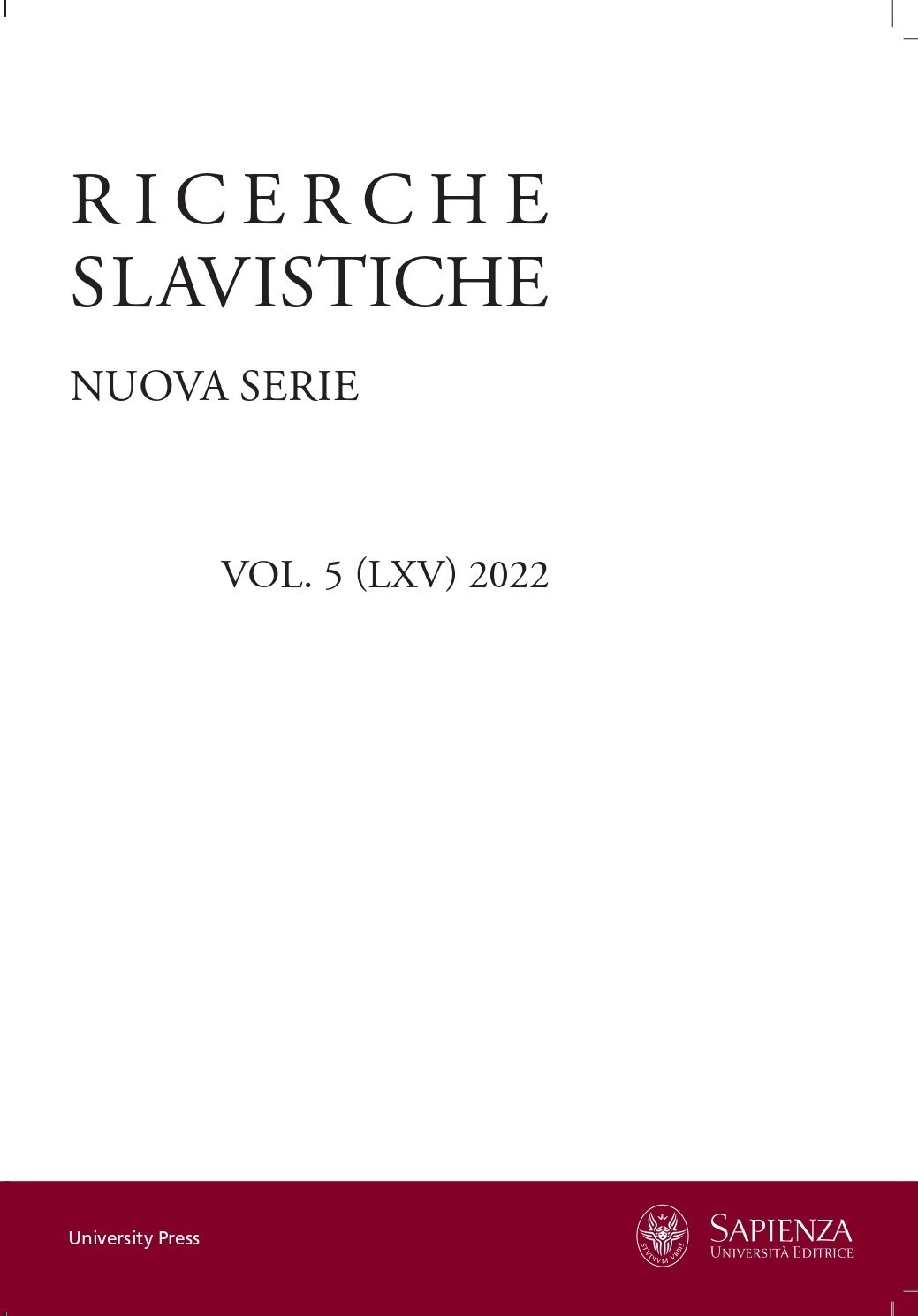
Serbocroatistic contributions have been published on the pages of “Ricerche slavistiche” since 1952, when this academic journal of Slavic Studies was founded by Giovanni Maver at the University of Rome (now Sapienza University). Articles and reviews on various Serbocroatistic topics (that is concerning linguistics, literary history, literary criticism, culture) have been appearing in this journal with such a continuity that they can be included among the most frequent ones.
More...